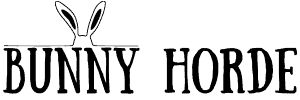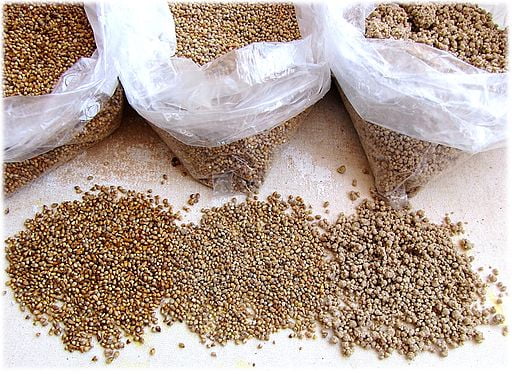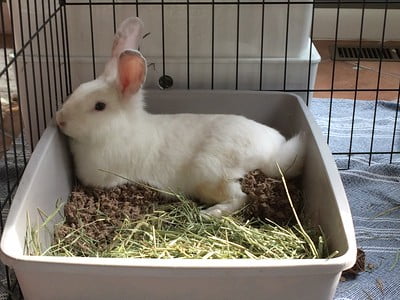Last Updated on March 5, 2023 by Marjon Ramos
Quick Facts About Chives:
- Scientific name – Allium schoenoprasum
- Also known as – cive / alliaceous plant
- Origin – Europe and Asia
- Most commonly found in – Netherlands
Every part of chives (leaves, scrapes, bulbs, or clustered pale purple flowers) should not be fed to rabbits because it belongs to the onion family, which is know to cause blood abnormalities in rabbits like hemolytic anemia.
In addition to hemolytic anemia (a decrease in red blood cells), rabbits can also develop an anaphylactic reaction (a severe life-threatening allergic reaction) when fed chives.
The reason for these is that chives and other plants that are in the onion family contain disulfides and thiosulfates.
These two chemicals are known to cause hemolytic anemia , methemoglobinemia (less oxygen delivered to cells), agglutination, as well as hemoglobinuria (blood in the urine) in rabbits.
Finally, disulfides and thiosulfates can weaken your rabbits immune system because they have been observed to have an immunosuppressive effect on small mammals like rabbits.
Now that I’ve given you the gist of the article, read on as I explain in more detail why rabbits can’t eat chives:
Table of Contents
Risk of overfeeding chives to rabbits.
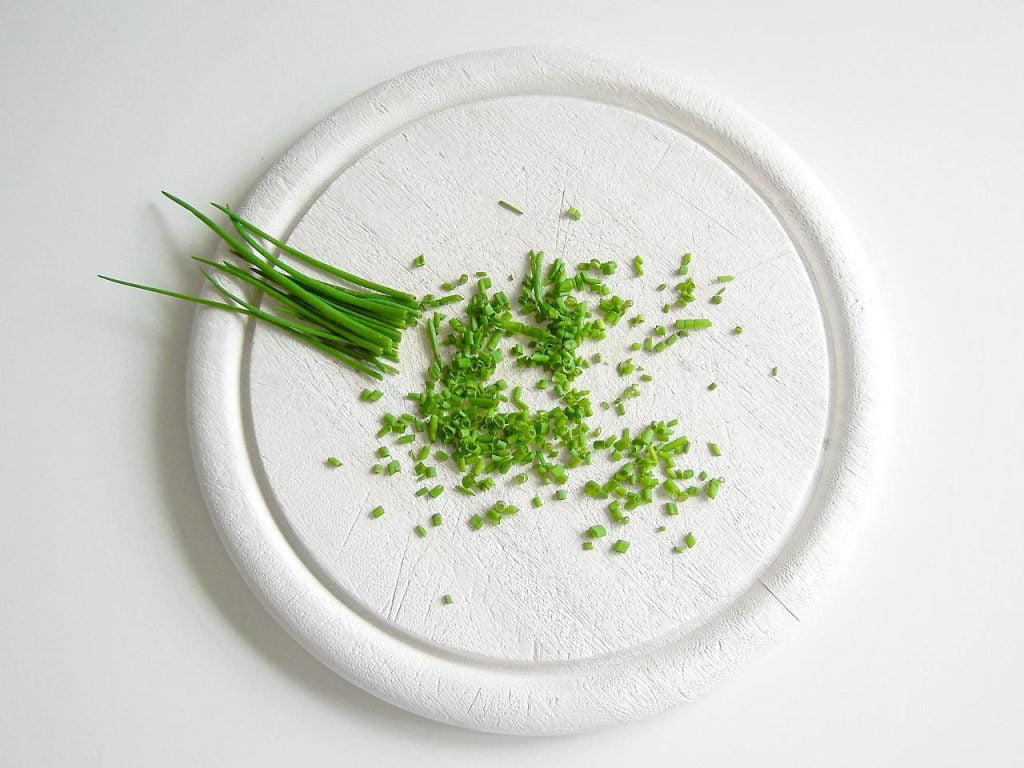
Chives and other plants in the onion family (garlic, common onions, scallions, leeks, shallots, and Chinese onions) have long been known to have negative effects on other animals (dogs, cats, etc.).
While your rabbit would need to eat a lot of chives for it to have negative effects on their health, there’s still some serious risk when doings so.
Here are some of the risks associated with feeding your rabbits large amounts of chives:
Hemolytic anemia
Chives contains disulfides and thiosulphates, which can lead to Hemolytic anemia on large doses.
Hemolytic anemia is a condition that occurs when your rabbit’s red blood cells are being destroyed faster than they can be replaced.
The signs that your rabbit might be suffering from hemolytic anemia can be one or more of the following:
- Lethargy
- Decreased appetite
- Decreased exercise tolerance
If you notice any of the following symptoms from your rabbit after accidentally eating a chives, bring them to a rabbit-savvy veterinarian for a proper diagnosis.
Anaphylactic reaction
Anaphylactic reaction or a severe life-threatening allergic reaction in rabbits is also possible if they accidentally ate chives.
Here are the signs that your rabbit might be having an allergic reaction to chives:
- Difficulty breathing
- Swelling of the face or respiratory tract
- Progressing shock
Toxicity
Some experiments have also been conducted by inducing large amounts of garlic extract on rabbits as test subjects.
What they found was that rabbits needed 3200 mg/kg for it to be fatal.
Signs of acute LD50 toxicity in rabbits include loss of appetite and partial paralysis.
While its true that garlic is the one that’s used in the experiment, both garlic and chives contains disulfides and thiosulphates.
You can read more about the mentioned experiment here.
Diarrhea
Diarrhea in rabbits is often caused by the wrong diet or when the diet is changed too fast.
Feeding your rabbit large amounts of chives would check those two boxes I mentioned.
I just want to add that diarrhea (a life-threatening condition) is often confused with uneaten cecotropes (which can be fixed by the right diet) in rabbits.
You can tell the difference between uneaten cecotropes and diarrhea by looking at your rabbit’s poop.
Rabbits that only have uneaten cecotropes would still produce solid poop pellets, while diarrhea would not.
Uneaten cecotropes
Soft uneaten cecotropes are also possible when rabbits are eating large amounts of chives instead of hay.
This could lead to softer cecotropes due to the lack of fiber in your rabbit’s diet.
Healthy alternative to chives.
Here’s a list of vegetables and leafy greens that are a great alternative to chives:
- Spinach
- Celery
- Green peppers
- Basil
- Mint
- Alfalfa & Clover sprouts
- Beet greens (tops)
- Parsley
- Pea pods (flat edible kind)
- Peppermint leaves
- Bok choy
- Escarole
- Clover
- Peppermint leaves
- Carrot & carrot tops
- Radicchio
- Raspberry leaves
- Spinach
- Wheatgrass
- Watercress
- Cilantro
- Dandelion greens and flowers (no pesticides)
- Radish
FAQ (Frequently Asked Questions)
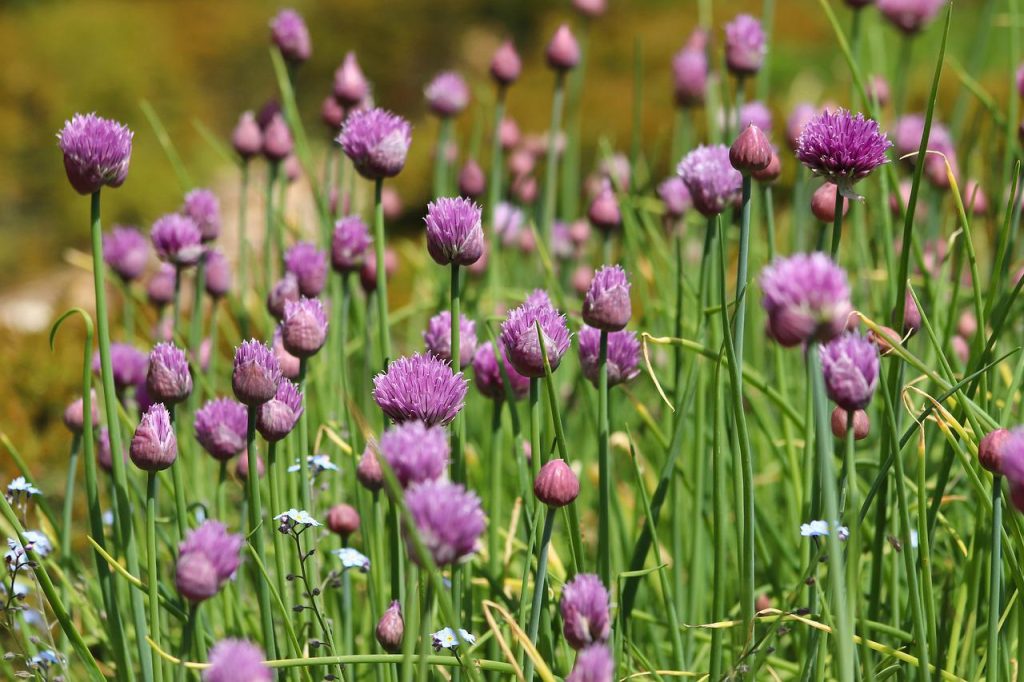
Should you panic if your rabbit eats a little bit of chives?
While it’s true that chives are toxic to rabbits, the amount of chives your rabbit would need to eat to experience any adverse effects is large.
Observe your rabbit for any additional symptoms like changes in their behavior, poop, urine, or signs of allergic reactions like swelling.
You can also call the poison control hotline if you suspect or are worried that your rabbit is experiencing intoxication.
What to do if your rabbit ate chives?
Observe your rabbit’s behavior and poop for any changes.
You should also feed them a lot of hay.
The extra fiber would help clear out what’s in their gut.
If you notice any changes in their poop or behavior, consult a veterinarian immediately.
Conclusion
Chives should never be fed to rabbits intentionally because it could lead to toxicity, allergic reactions, anemia, and weakened immune systems.
While it’s true that chives is toxic to rabbits, your rabbit would need to eat a lot of chives before experiencing any adverse effects.
If you suspect or are worried that your rabbit might be suffering from toxicity, call your veterinarian or your animal poison control hotline.
Cite this article
Related Articles
